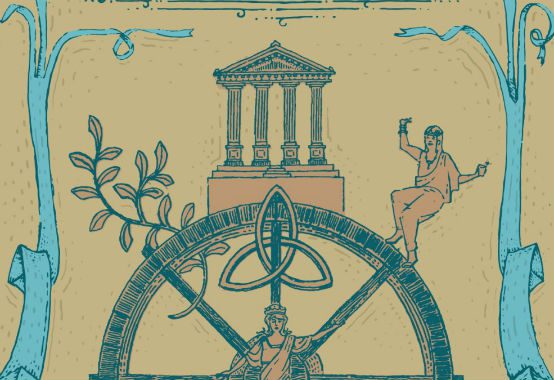Recovering the Art of Poetry

What is poetry and what is poetry for? To ask the first question is to ask the second. To answer both questions in light of the western tradition stretching back to Homer, and against much modernist and postmodernist poetic theory and practice, is the goal of James Matthew Wilson’s remarkable new book, The Fortunes of Poetry in an Age of Unmaking. Beginning with a trenchant analysis of the deficiencies of contemporary poetry—free verse, the prose poem, and other innovations—Wilson demonstrates persuasively that far too many poets have rejected, or simply drifted away from, the necessary though not entirely sufficient definition of poetry by American poet J.V. Cunningham: “It is metrical composition.”
For Wilson, this definition attracts to itself other qualities densely present in poetry at its best—music, number, metaphor, remembrance, structure, and more. It also links poetry, as “the paradigmatic art form,” to the most profound philosophical and theological propositions. God is transcendent but is also the Creator of the cosmos. Therefore, poetry incarnates universal qualities of God—Goodness, Truth, and Beauty—in the local concrete particulars of the fully realized poem—W.K. Wimsatt’s the “verbal icon,” whose metaphors and symbols, radiant with being, bind the Many and the One.
God as Maker of the world and the poet as maker of the world of the poem—the macrocosm and the microcosm—harmonize, just as a poet’s music harmonizes with the music of the spheres. A poem, in part, is a gift from the Muses, daughters of Mnemosyne—Memory. Yet the poem is also the result of the hard work of the poet, mastering and exercising his craft.
Moreover, a poem is not “pure” as though existing in some unreal, merely “possible” world of self-reflective isolation or dream. Rather, it remembers and then retells part of the story of the world of cosmic time and human history, a world made and given by the love and grace of God and therefore objectively real. The world is simply there for us to perceive, be grateful for, and try to comprehend.
And since a narrative is plotted—with beginning, middle, and end—then part of the definition of a poem is the answer to a question: what is poetry for, or, in Aristotelian terms, what is its telos? This final end is nothing less or other than to arouse in us a profound sense of wonder in coming to know, as Wilson says, that “Reality as a whole is formed as the good-world-order, the intelligible beauty showing forth from that cosmic circle of procession and return.” With this in mind, Wilson shows how poetry has become deficient not only in form but also in matter—and in logic and grammar as well.
How far poets have fallen away, both in theory and in practice, from an understanding of the nature of metrical composition is the subject of this book’s earlier chapters—chapters filled with Wilson’s razor-sharp wit, skillfully employed in his analysis of what too often passes for poetry at present. Wilson exposes the attempts by some poets to try to replace a thorough knowledge of the poet’s craft and of perennially significant subject matter with currently popular (usually leftist) social or political ideology superficially presented or else with wholly invented and thus ungrounded would-be or make-believe worlds. Such poets, Wilson finds, also tend to see everything as relative and subjective—except, of course, their own uncontested hypotheses and prejudices. Wilson argues that the poet has a primary and profound obligation to try to understand, depict, and praise the one and only given world, as measured verse is unsurpassably situated to do. The matter of a poem matters and should be a deep engagement with, in T.S. Eliot’s words, “the permanent things.”
An appendix of poetic terms and forms provides a comprehensive introduction to that technical knowledge without which the works of almost all of the poets in the western tradition from Homer through W.H. Auden, Richard Wilbur, Philip Larkin, and beyond would have been impossible.
For those poets who wish to recover the art of poetry in its fullness and to tell the story of humankind and of Creation in light of what Jacques Maritain called “the radiance of the ontological mystery,” this book shows them how to do so. It points the way back home.
David Middleton is poetry editor for Modern Age.
Comments